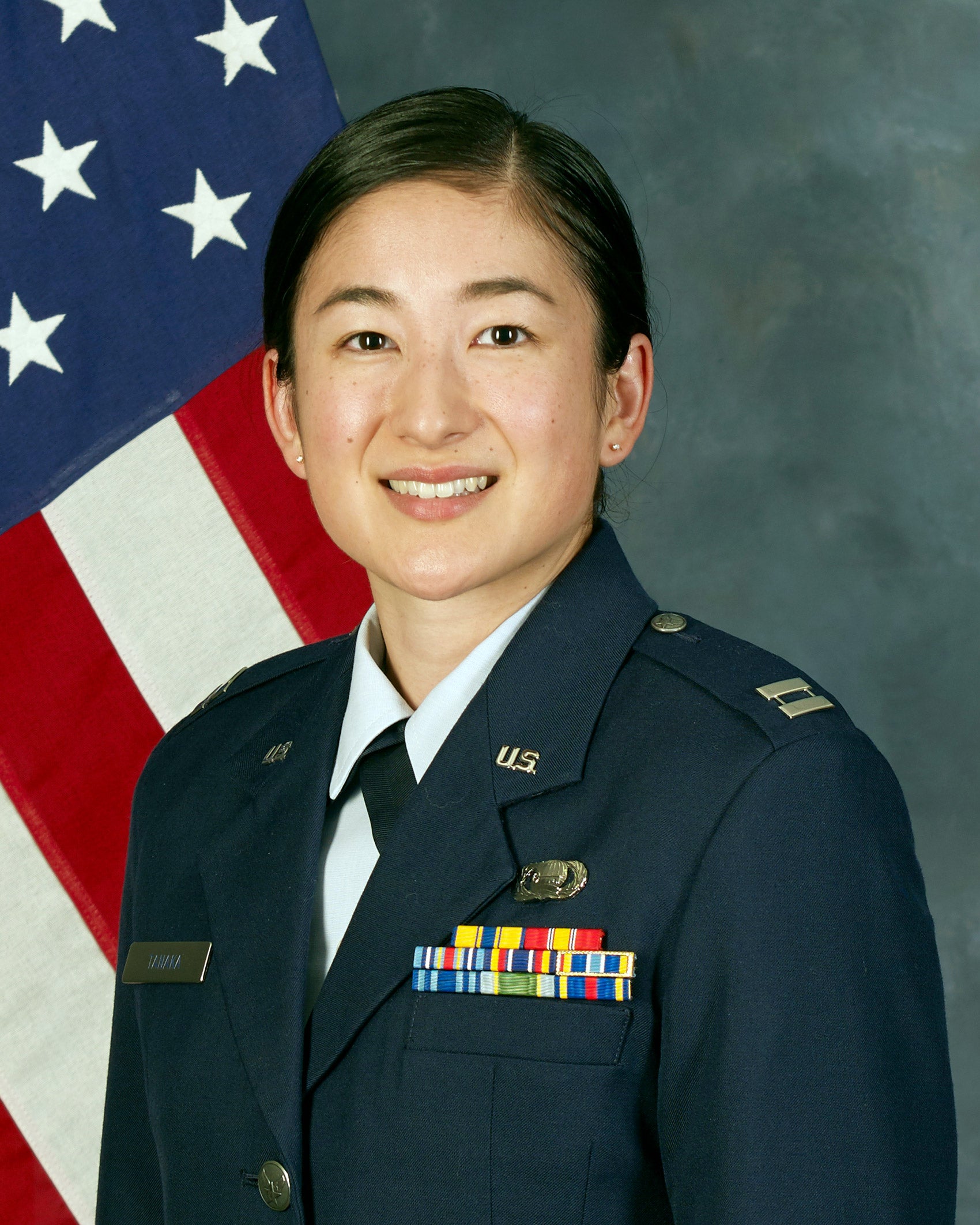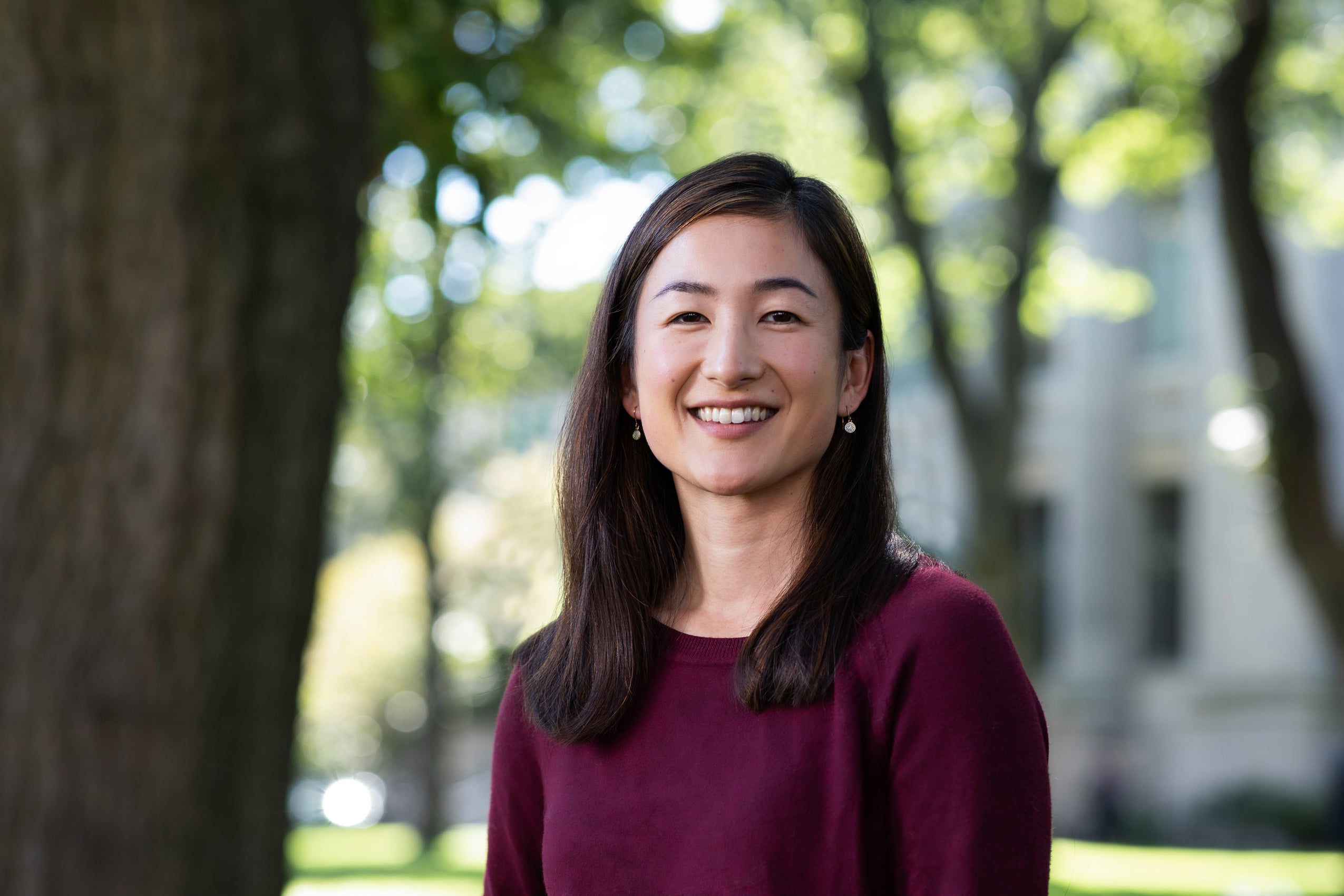Kristi L. Tanaka ’24 is very aware that she is one of the first military veterans some of her Harvard Law School classmates have ever met.
“A lot of civilians don’t have a connection to people who have served,” says Tanaka, a 2015 graduate of the U.S. Air Force Academy who served for five years as a military intelligence officer. “A classmate of mine said her only real interaction with anyone in the service was when she went to get a COVID vaccine and the National Guard administered their shots.”
At the academy, where Tanaka led student organizations that focused on strengthening civil-military relationships, she came to believe that the best approach is to build personal relationships. “I’m more and more aware that my sharing my experience with my classmates and other civilians may be their only experience interacting with someone in the military,” says Tanaka. “If I graduate helping one person better understand the military and how national security issues inform that perspective, I will be happy.”
“People are definitely curious. I’m grateful to be able to share my experiences with them,” says Tanaka, whose many unusual accomplishments include being a military freefall parachutist and a graduate of the grueling Air Force survival school, which teaches how to stay alive alone in the wilderness with no food or water. “People ask me, ‘What is it like to be a woman in the military, or a minority in the military?’ A lot of times I forget I’m also representing those groups when I talk to them, so it’s kind of special to be able to do so.”
It’s very special to spend time (at HLS) with fellow veterans or those who are continuing to serve. It shows that Harvard Law School really invests in veterans through recruiting them.
And Tanaka is “pleasantly surprised” by how receptive the HLS community is to veterans. “People have actually told me that they’re sort of impressed with my service,” says Tanaka. “They say, ‘Thank you for your service,’ and that’s awesome, I’m so appreciative of it. It’s just that I wasn’t expecting the overwhelming support and the almost awe, I guess, because I served with some people that I think are way more accomplished.”
She’s excited, too, by the community of veterans at HLS. “I’m meeting people who’ve done things in the military that are so different and so cool and that I didn’t necessarily get to see while I was on active duty,” she says. “It’s very special to spend time with fellow veterans or those who are continuing to serve. It shows that Harvard Law School really invests in veterans through recruiting them. ”
Born and raised in St. Louis, Missouri, Tanaka was inspired to military service by her mother, a nurse in the Air Force Reserves. Tanaka chose to matriculate at the Air Force Academy because she was eager for new challenges, and wanted to explore the possibility of becoming a military pilot. Although she later decided that flying jets wasn’t her passion, she embraced the broad requirements of the core curriculum, including engineering, math, and science. But it was in her political science courses, many of which were taught by military intelligence officers, that inspired her career path.

“I really had a good time at the academy,” she says. “I think it sometimes get mixed reviews and it’s definitely challenging but that’s why I went. I wanted to be challenged, and I was drawn to the structure and organization and discipline.” Tanaka co-founded a political science club, was president of the Cadet Interfaith Council, where she created a monthly discussion series on different faith-based and secular traditions, and earned several faculty-nominated awards including for excellence in national security studies.
After graduation, she trained as an intelligence officer in Texas before being stationed in Anchorage, Alaska. “When I found out I was going to Alaska, I was instantly excited,” she says. “I had never been there. Mountains, check. Water, check. New experiences, check — I knew it was going to be great!” Looking for a way to connect with the Anchorage community and to put down some roots herself, however temporary, she volunteered each week with runaway and homeless teens, instructing them in public speaking as a way for them to gain confidence.
After three years in Anchorage, her next duty station was in Washington State, where she volunteered as a child advocate for kids in foster care. When her five-year stint in the Air Force was up, she wrestled with whether to stay but ultimately decided it was time for something new. She left active service with the rank of captain although she remains in the Air Force Reserves, and, in the year before matriculating at HLS, she worked as a legislative aide to the city of Anchorage. There, she led community outreach efforts during the COVID-19 pandemic.
It’s kind of like an addiction where you know you have the capacity to help someone and it’s really special to be in a position to do that.
At HLS, Tanaka is a member this year of the Prison Legal Assistance Program, where she and other students represent inmates in Massachusetts state prisons in parole revocation, disciplinary, and other hearings. A fellow in the Harvard Kennedy School Center for Public Leadership, she is mentoring first-term Air Force officers.
Tanaka is considering a career in the area of national security, although there are many other options she wants to explore while at HLS. But she’s certain she wants to continue in public service in one form or another.
“I’ve had so many incredible experiences working with people, both when I was in the Air Force and out of the Air Force, where you know you’ve changed someone’s life,” she says. “It’s kind of like an addiction where you know you have the capacity to help someone and it’s really special to be in a position to do that.” At HLS and beyond, “there are just so many opportunities to make an impact on someone’s life.”
